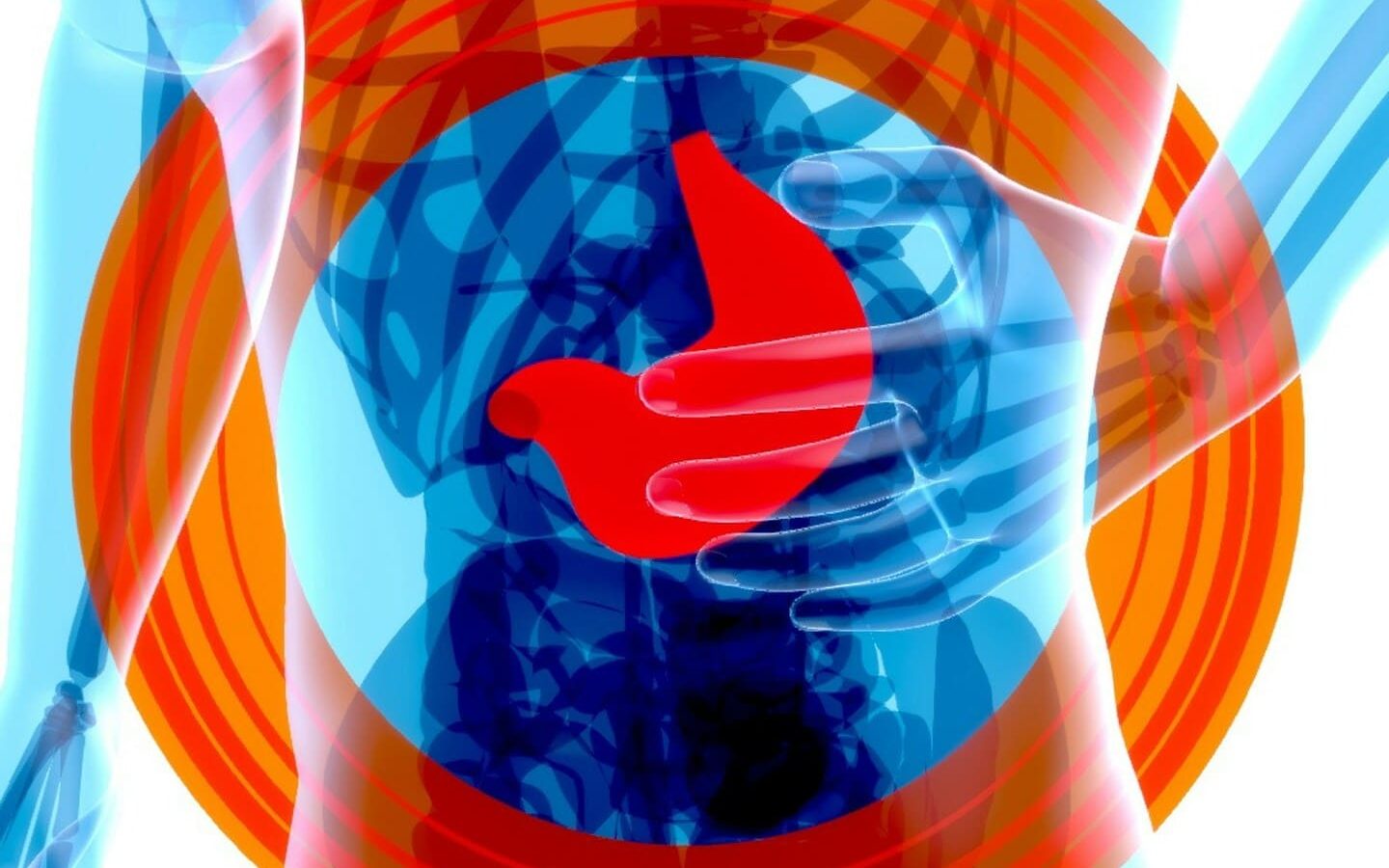Our digestive system is incredible. When it’s working optimally, it allows us to choose any food we like, and then sets to work breaking it down, extracting and absorbing every bit of goodness to power our bodies, and then parcelling the waste up for removal. It is a system that I will never tire of learning more about.
But… for a lot of people this system isn’t working optimally. In fact, for some, it’s a constant cause of pain and discomfort. In my next few blog posts I’m going to take a closer look at some of the digestive conditions that I see most regularly in my clinic. Let’s start with reflux.
Our stomach plays a pivotal role in digestion, kickstarting the breakdown of food (particularly protein) to extract vital nutrients. Stomach acid (hydrochloric acid, HCl) is key in this process, at the same time creating a hostile environment to kill off any pathogens that we have unknowingly consumed along with our food. While reflux is often attributed to too much stomach acid, the reality is different. Stomach acid that escapes and can be felt rising into the oesophagus is rarely due to too much, but too little. Or the right amount, but at the wrong time. Surprised? Read on to find out more.
Recognising the signs of reflux
Many of you may have experienced reflux after a heavy meal. You might have felt a burning sensation in the middle of your chest. Or perhaps an unpleasantly sour taste in your mouth. Possibly you had a cough, or hiccups that you couldn’t get rid of. Bad breath, hoarseness and a feeling of bloating, fullness or sickness after eating are other symptoms of stomach acid in the wrong place at the wrong time.
“But I’ve always been told reflux is due to too much stomach acid”
New understanding about reflux has changed the way we think about it. Instead of too much, it’s frequently due to too little. This means that the food that has been eaten sits for too long in the stomach, allowing it to ferment. Fermentation leads to a build up of gas, which has no escape but to force open the oesophageal sphincter, which should remain firmly shut once food has been swallowed. Once this has been opened, stomach acid can then move out of the stomach and cause the symptoms above.
Connecting the dots: understanding the symptoms
From fragile fingernails to unrelenting heartburn, the symptoms associated with low stomach acid is diverse. Do you find yourself inexplicably avoiding breakfast or shying away from meat-heavy meals? Are bouts of bloating and post-meal fatigue becoming all too familiar? These signs hint at a digestive system that needs a helping hand.
Other factors that play a role in low stomach acid
While it may be tempting to resort to quick fixes like apple cider vinegar or HCl pills, addressing low stomach acid demands a nuanced approach. Our body’s ability to produce stomach acid depends on a number of factors. This can range from age and hydration status, to deficiencies in vital nutrients like B6 and zinc.
The influence of stress further complicates matters, disrupting the intricate interplay between our nervous system and digestive function. It’s not just about what we eat but how we eat. Our modern eating habits – too fast, often while watching TV/scrolling etc. – mean the the brain does not receive the vital signals that food will soon reach the stomach. It is therefore unable to stimulate gastric juices and digestive enzymes to deal with the food adequately.
Simple approaches to rebalance stomach acid and reduce reflux
The good news is that there are a number of simple changes that can help support reflux. By addressing underlying deficiencies, building stress-reducing practices into the day, and introducing mindful eating habits, our digestive system will rebalance itself. And as stomach acid is secreted in the right amounts, and at the right time, symptoms of reflux will fade.
So, if you find yourself experiencing heartburn, a sour taste, coughing or fullness after meals, it may be that you have reflux. But, instead of looking for ways to dampen down stomach acid production, consider that you may need to build it up.
If you would like any further advice, or have tried addressing it yourself with little success, then I would love to invite you to book a free 30-minute health review to talk through your symptoms. With the right support, you can say goodbye to reflux.


 The impact of alcohol on gut health
The impact of alcohol on gut health